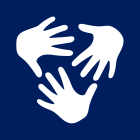Culture plays a key role in advancing the EU's geopolitical priorities. It fosters intercultural dialogue and mutual understanding, safeguards and promotes cultural heritage, and contributes to economic growth and job creation through vibrant cultural and creative industries.
In EU external relations, work on culture is guided by co-creation, people-to-people exchanges, and mutual respect. These principles shape the way partnerships and programmes are created, ensuring they are inclusive and collaborative.
Culture in the external action is guided by the EU Strategy for International Cultural Relations, which identifies three main axes:
- supporting culture as an engine for sustainable social and economic development
- promoting culture and intercultural dialogue for peaceful inter-community relations
- reinforcing cooperation on cultural heritage
The New European Consensus on Development, the New Agenda for Culture, the European Framework of Action on Cultural Heritage, and the EU Council Resolution on the Cultural Dimension of Sustainable Development develop this approach further.
The approach to culture in international partnerships also reflects the EU Global Gateway strategy, which promotes sustainable and trusted connections among peoples. Building people-to-people relations within and between countries and continents is essential for creating lasting partnerships based on shared values.
The contents from Culture and Development - Action and Impact are being merged and updated to this Group


